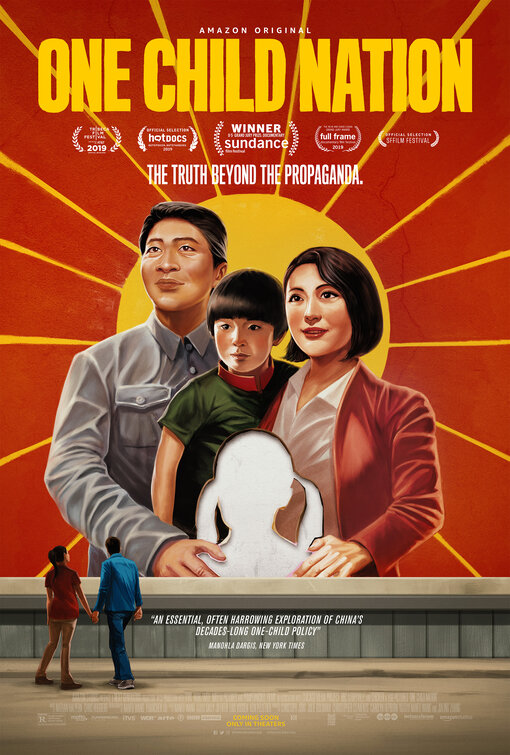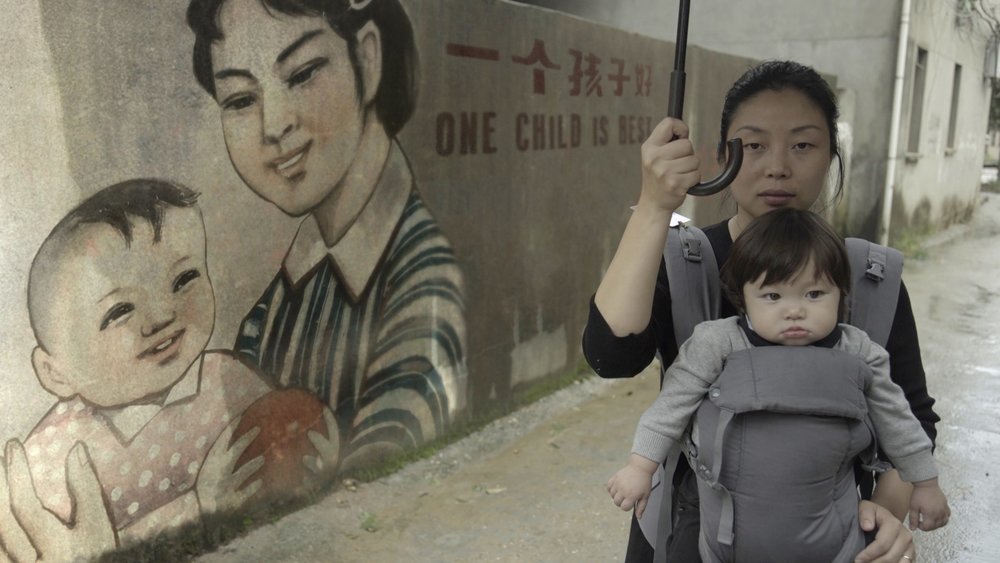One Child Nation (2019)


SHOULD I SEE IT?
YES
For those not familiar with the history of China’s efforts at population control, this is a must-see documentary and one of the best documentaries of 2019.
Stays objective, which feels like a triumph of filmmaking, in and of itself, based on the subject matter.
Does what powerful documentaries do best: Illuminates something important, simply by turning a spotlight on a moment of history and being unafraid of what may be found.
NO
This can be a very difficult watch, largely because of the information being shared and provided. Some of the content here is deeply disturbing.
I suppose you could just turn a blind’s eye and think that since this may have never pertained to you, it is nothing you need to be aware of. However, the decades of impact this policy had on families does matter and may be closely connected to someone you know who may be of Chinese descent.
You don’t like movies that make you feel real emotions and contemplate real-life problems in the world around you.
OUR REVIEW
One Child Nation, in some ways. is a triumph of documentary filmmaking. Not only is it unbelievable in just how real and raw the reveals and disclosures become, but also in just how unflinchingly honest and forthright the film is.
Directed by Nanfu Wang (Holligan Sparrow) and Jialing Zhang, the film looks at China’s One-Child Policy, a mandate by the Chinese government from 1980-2015, which restricted couples to having just one child only. While some exceptions were made during the 35 years the policy was in place, the effects of what this policy enacted upon women, families, and the general population is heart-wrenching, unseemly, and undeniable.
Initially, the policy was viewed as something of a novelty in the Western media. Billboards, propaganda, and a country-wide PR campaign made the idea of a one-child family seem wholesome, proper, and responsible. Wang, born during this time, realized that she knew very little of this mandate when she become pregnant with her first child, residing in the United States. Additionally, she had a brother, which made things seem all the more confusing.
In wanting to learn more, she discovered far more than she ever could have realized.
Wang and Zhang’s film quickly moves from quizzical curiosity to an absolutely stunning analysis of what this seemingly innocuous decision wrought on the Chinese people.
The benefits were touted: With over 1 billion people in the country at the time, experts believed that population control of this kind would provide a better standard of life for families. Food of all types, rumored to be in crisis if the population grew at trending rates, would become more stable and sustainable under the One-Child doctrine. Happy images of a husband, wife, and child became part of everyday culture. No one young enough to know any better really questioned it, though people knew that some families went ahead and had second children because enforcing the policy was not handled in a uniform or consistent manner.
What did result in some regions of China, where enforcement was strictly followed, creates a world of horrifying and awful realities. Women are forced to become sterile after giving birth to their one child. The government would mandate abortions for women and families in violation of the policy. Cultural expectations never wavered that sons were needed to provide for their own families as adults. And while the government did grant exceptions to some families to have a second child, when their first-born was female, selective-sex abortions, forced adoptions, and the separations of countless children from their families became the status quo.

One Child Nation proves terrifying when we weigh all these stories and circumstances. In some of the film’s most chilling and breathtaking moments, Wang interviews members of her own family, who discuss their involvement or experiences when facing the policy first-hand.
Her uncle shares a story of giving his infant daughter up for adoption, only to have her neglected and essentially abandoned prior to any adoption procedures were implemented. She would die days later.
Girls were far and away the children most affected, more susceptible to adoption or handling from child traffickers. When Nanfu was born, her parents wanted a son. Though her name translates to “Man” and “Pillar”, as in the man is the pillar of the family, they kept her name - a stigma she has carried with her throughout her years.
Child trafficking becomes a part of the story as well. Efforts are made to rescue kids, essentially saving lives, only to then be sold to traffickers who would then export them all over the world. Wang and Zhang show us thousands of images of young babies’ images, printed on sheets of paper, tagged with a number, and essentially allocated a price. The scores of twins broken apart, having grown up never likely knowing they have a sibling out there in the world, is another devastating, unconscionable element to all of this.
Ultimately, and to their credit, the filmmakers present all of this as objectively as they can. Granted, no one from the Chinese government is on screen defending the decision to implement the policy, but Wang and Zhang lay out the clear justifications, as China shared nationally, to give the film proper balance.
I wish the film was a little bit longer, inasmuch as being able to provide more context for opposition to these practices and why the world largely stayed silent on the human rights abuses taking place over these 35 years.
Although difficult to watch, One Child Nation is a documentary that I think requires a second viewing. The initial shock of all of this is almost too much to bear. And when a local midwife reveals that she personally oversaw as many as 50,000 sterilizations and abortions, your heart simply breaks and words cannot properly justify the damage this policy left on not just the “one generation” this was supposed to impact, but on future generations to come.
CAST & CREW
Documentary Featuring: Nanfu Wang, Shuqin Jiang, Brian Stuy, Zhimei Wang, Zhodi Wang, Peng Wang, Longlan Stuy.
Director: Nanfu Wang, Jialing Zhang
Release Date: August 9 , 2019
Amazon Studios
